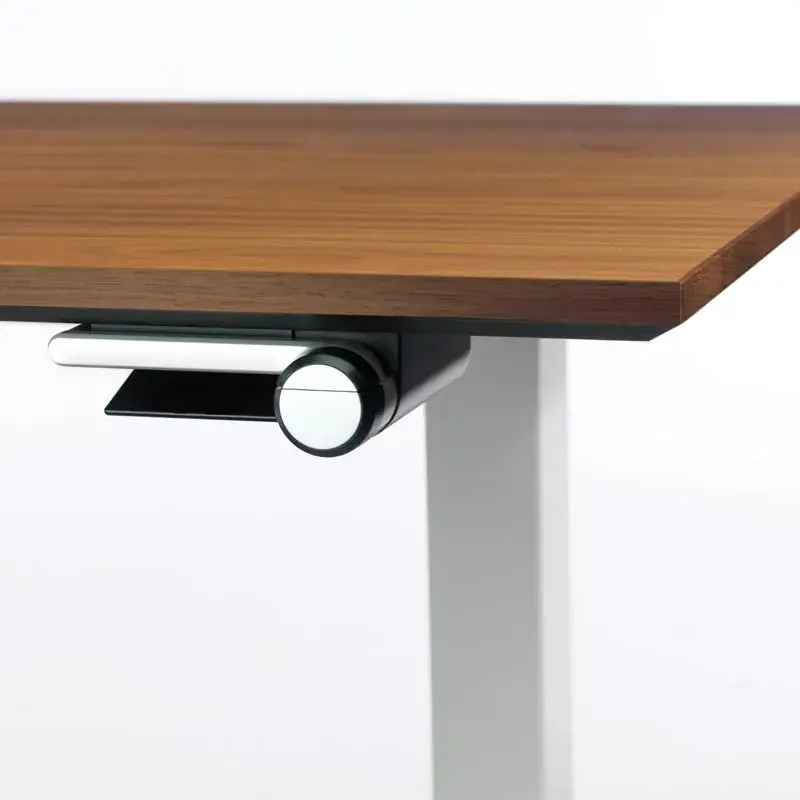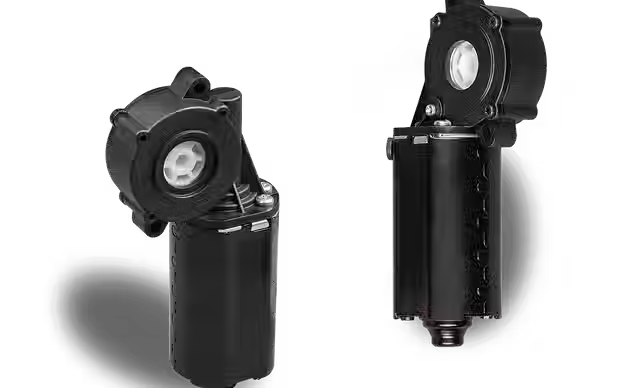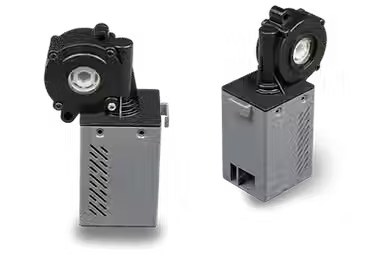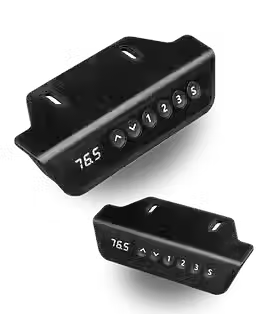The Role of HDM Actuators in Modern Hospital Beds
- Xie
- Jul 16
- 10 min read
Understanding the Importance of Patient Comfort in Hospital Settings
Have you ever considered how a simple hospital bed can significantly impact patient recovery? The integration of advanced technology, such as a hospital bed actuator, plays a vital role in providing optimal patient comfort and safety in modern healthcare settings. These actuators allow healthcare staff to adjust beds easily, enabling personalized comfort and support tailored to individual patient needs. After all, a comfortable patient is often a more cooperative and quicker-to-recover one.

Advanced Features of Hospital Bed Actuators
Think about the last time you were confined to a bed; proper alignment and support would make a world of difference. Hospital bed actuators are engineered to provide precise control over bed positioning. With features like adjustable height and tilt, these actuators help caregivers reduce strain while ensuring patients are positioned for maximum comfort and safety.
Benefits of Utilizing Actuators in Hospital Beds
These modern actuators do more than just elevate the bed; they enhance the overall hospital experience. When we utilize hospital bed actuators, we're fundamentally changing patient care dynamics. From allowing easy access for medical procedures to improving sleep quality, their benefits are multifaceted.
Enhanced comfort and safety for patients
Reduced physical strain for healthcare staff
Improved patient mobility and access
Integrating these actuators not only promotes an environment of care but also speeds up recovery times.
Feature | Benefit |
Height Adjustability | Facilitates easier access for caregivers |
Multi-Positioning | Enhances comfort and reduces bedsores |
Patient-Centric Care and Technology
Ultimately, the integration of hospital bed actuators signifies a shift toward patient-centric care. By investing in such technology, hospitals not only improve quality of care but also foster a better healing environment. Incorporating statements from patients can provide even greater insight into their experiences:
"I didn’t realize how important bed comfort was until I experienced it firsthand!"
"Adjusting my bed made all the difference for my recovery."
"In healthcare, every detail matters, and a comfortable bed can be the difference between discomfort and a smooth recovery."
The Significance of Hospital Bed Actuators in Enhancing Patient Safety
In today's healthcare environment, patient safety is of paramount importance. One critical element contributing to this safety is the hospital bed actuator. These devices facilitate smooth adjustments to patients' beds, allowing for optimal positioning that can significantly enhance comfort and reduce the risk of falls. As I’ve witnessed firsthand, the integration of hospital bed actuators in modern settings is nothing short of revolutionary, transforming how we care for our patients. This is just one of many great blogs we have—explore more right here.

What Are Hospital Bed Actuators?
Hospital bed actuators serve as the driving force behind the movement of medical beds. They utilize electric or hydraulic systems to enable effortless adjustments, such as elevating the backrest or lowering the legs. This capability not only makes it easier for nurses to assist patients but also empowers patients themselves, granting them more autonomy and comfort. Understanding this technology can help caregivers better appreciate its importance in enhancing safety.
Benefits of Hospital Bed Actuators
The human body responds remarkably well to proper positioning during recovery. Hospital bed actuators create multiple positioning possibilities that optimize comfort. Consider these advantages:
Reduced risk of pressure ulcers
Improved circulation
Enhanced respiratory function
Moreover, these actuators can be controlled with ease, enabling caregivers to swiftly respond to patient needs, which is vital in emergency situations.
Feature | Advantage |
Adjustable Positions | Tailored comfort according to patient needs |
Electric Controls | Effortless adjustments for staff |
Safety Features | Prevention of accidental movements |
Addressing Common Misconceptions
Many people think that hospital bed actuators are just luxury additions. In reality, they are essential for ensuring patient safety and comfort. By addressing these misconceptions, we can foster a better understanding of their significance in everyday healthcare practices.
Actuators aren’t just for convenience; they’re essential for recovery.
The technology prioritizes not just efficiency but also patient health.
The hospital bed actuator is not merely a component—it’s a lifeline for patient safety.
How Hospital Bed Actuators Improve Overall Patient Experience
When caring for patients, comfort and safety are paramount, and that's where hospital bed actuators play a crucial role. These innovative devices ensure that beds can be adjusted seamlessly to meet the specific needs of patients. Whether it’s adjusting the height for easier access or repositioning for better comfort, a hospital bed actuator makes all of this possible with just a simple touch of a button. This not only enhances patient satisfaction but also aids caregivers in providing optimal support with minimal strain.

Customization at Your Fingertips
The beauty of modern hospital beds powered by actuators lies in their flexibility. Each patient has a unique set of needs, and a hospital bed actuator allows for quick adjustments that can transform the patient experience dramatically. Imagine being able to elevate the upper body of a patient recovering from surgery. This essential feature can be effortlessly achieved, making a noticeable difference in their overall comfort and safety.
Boosting Recovery with Ease
It’s important to recognize how a hospital bed actuator can influence the recovery process. Proper positioning can reduce pain, enhance circulation, and even improve sleep quality for patients. With the ability to modify bed angles and height, caregivers can promote both safety and an environment conducive to healing.
Height adjustments for easy access
Auto-repositioning features
User-friendly controls
Incorporating advanced actuators into patient care doesn't just improve functionality; it revolutionizes the entire hospital experience. Since the transition is so smooth, patients can rest easier, knowing that any needed adjustments are manageable.
Enhanced Comfort | Improves patient satisfaction levels |
Height Adjustability | Facilitates better access for caregivers |
Reduction of Pressure Ulcers | Minimizes discomfort and promotes healing |
“In healthcare, the little things—like an adjustable bed—can make a significant impact on recovery and morale.”
Hospital Bed Actuator Features that Promote Comfort and Recovery
When it comes to hospital beds, comfort and recovery are paramount. This is where the hospital bed actuator plays a crucial role, seamlessly adjusting positions to enhance patient relaxation and healing. From improving circulation to aiding in respiratory health, these actuators transform a static bed into a versatile support system tailored for individual patient needs. Imagine a mechanism that can elevate your legs or enable you to sit up effortlessly – that’s the modern hospital bed actuator at work, providing essential comfort during recovery. Want to explore more? Head over to our homepage and see what we have to offer!
Precision and Customization
One of the remarkable features of hospital bed actuators is their precision. With the touch of a button, a patient can find their most comfortable position, promoting quicker recovery. You might wonder, how can something so simple have such a profound impact? Well, consider a patient recovering post-surgery; a slight tilt can relieve pressure points and reduce pain, enhancing the healing process.
Durability and Safety
Safety cannot be overstated when discussing hospital bed actuators. These devices are engineered to withstand daily use while ensuring reliability. Patients can relax with peace of mind knowing they'll always be securely positioned. But, there’s more to it. Actuators are designed with fail-safes, preventing unintended movements. This gives medical staff confidence in managing patient care effectively.
Versatile positioning for improved comfort.
Enhanced safety mechanisms to prevent accidents.
Durable materials for long-term use.
Compelling, right? An effective hospital bed actuator not only makes life easier for patients but also aids caregivers in delivering top-notch treatment with ease.
Adjustable Height | Facilitates patient transfers and comfort. |
Independent Head and Foot Elevation | Promotes optimal position for recovery. |
Emergency Locking | Ensures safety during unexpected situations. |
“The beauty of hospital bed actuators lies in their ability to adapt – just like we must as caregivers.”
Integrating Hospital Bed Actuators into Healthcare Facilities
In today's healthcare landscape, patient comfort and safety are paramount, and hospital bed actuators play a crucial role in achieving both. These innovative devices enhance the functionality of hospital beds, allowing for a range of adjustments to cater to individual patient needs. Have you ever considered how a simple push of a button transforms a patient's experience? Whether it’s elevating the head or controlling the footrest, actuators make these adjustments seamless, fostering an environment conducive to recovery.
Enhancing Patient Experience
The integration of hospital bed actuators into medical facilities isn't merely about technology; it's about the human experience. Imagine a patient with limited mobility; with actuators, caregivers can adjust their position easily and quickly, promoting comfort and reducing strain. Not only does this improve recovery times, but it also alleviates the physical burden on medical staff. It's a win-win for everyone involved.
Versatility and Functionality
Hospital bed actuators are not one-size-fits-all. They can be tailored to fit different bed models, accommodating various healthcare settings, from intensive care units to outpatient clinics. This versatility ensures that every patient receives the support they need, regardless of their specific health challenges. Let's explore some key functions of these actuators:
Height adjustment for easier transfer.
Backrest elevation for comfort.
Legrest adjustment for circulation improvement.
Actuator Feature | Benefit |
Linear Actuation | Precise positioning for patient comfort |
Remote Control | Enhanced convenience for staff and patients |
Durability | Long-lasting performance in healthcare settings |
Future Innovations
As we look to the future, hospital bed actuators are only going to become more advanced. Integrating smart technology could soon allow beds to automatically adjust based on patient vitals or provide alerts to staff for immediate assistance. This evolution is the direction we aspire towards, reflecting the ongoing commitment to patient-centered care.
Smart sensors for automatic adjustment.
Integration with hospital management systems.
Remote monitoring capabilities.
The future of healthcare hinges on innovation, and hospital bed actuators are leading the charge in enhancing patient comfort and safety.
Challenges in Hospital Bed Actuator Implementation and Solutions
Implementing hospital bed actuators comes with its unique set of challenges. From ensuring compatibility with existing bed designs to addressing the varied needs of patients, the road can be bumpy. Hospital bed actuators must deliver seamless functionality to enhance patient comfort and safety, but achieving this requires overcoming several hurdles. For instance, staff training is often overlooked, leading to underutilization of these sophisticated devices. On the flip side, proper training can transform how care teams engage with technology, improving overall care efficiency.
Technological Constraints
One of the core obstacles is technological constraints. Actuators need to integrate smoothly with hospital infrastructure and legacy systems. If they don't, the result can be frustrating for both caregivers and patients alike. Hospitals must meticulously evaluate which actuator solutions align well with their operational demands and technological capabilities to ensure smooth integration.
Cost Implications
Another challenge is the cost implications of installing hospital bed actuators. While these devices promise multiple benefits, the initial investment can deter many facilities. Understanding the long-term value of enhanced patient care and safety is crucial here. We need to look beyond immediate expenses to see how these investments pay off.
Integration with existing systems
Staff training and support
Cost versus long-term benefits
Challenge | Solution |
Technological Constraints | Thorough evaluation of actuator compatibility |
Cost Implications | Consideration of long-term returns on investment |
Final Thoughts
As an industry expert, I’ve seen firsthand how overcoming these hurdles can transform hospital operations. By addressing the challenges of implementing hospital bed actuators, facilities can ultimately enhance patient safety and comfort.
Enhance patient comfort
Boost care team efficiency
Streamline hospital operations
"The right hospital bed actuator can make all the difference—turning a basic hospital bed into a hub of care innovation."
Conclusion: The Future of Hospital Bed Actuators in Patient Care
As we look ahead, the role of the hospital bed actuator will only grow in significance within the realm of patient care. These vital components are already transforming the healthcare landscape by enhancing comfort and safety for patients. Imagine a hospital bed that instinctively knows how to adjust itself for optimal positioning, catering to the unique needs of each patient. It's not just about convenience; it's about improving recovery outcomes.
Integrating Technology for Seamless Care
The future of hospital bed actuators lies in their integration with advanced healthcare technologies. Wearable devices and monitoring systems can communicate with actuators, creating an ecosystem where patient needs are met in real time. This can lead to shorter hospital stays and improved patient satisfaction. Think of it as a symphony, where every component works together harmoniously for the best results.
Designing for Comfort and Safety
In terms of design, hospital bed actuators are evolving. The focus is shifting towards creating beds that not only function well but also offer a welcoming environment. Aesthetic design and intuitive control systems enhance both comfort and safety, minimizing the anxiety often felt by patients in clinical settings. What if hospital beds could be as comforting as your own at home?
Enhanced patient mobility
Improved safety features
Customization options for individual needs
These innovations can lead to a safer and more comfortable experience. Let's not forget the benefits of increased flexibility and accessibility, allowing caregivers to perform their tasks efficiently.
Feature | Benefits |
Smart Actuation | Improved patient positioning |
Ease of Use | Quicker adjustments for caregivers |
Safety Sensors | Reduced risk of falls |
Embracing the Future of Patient Care
No doubt, as we embrace these advancements, hospital bed actuators will play a pivotal role in shaping the future landscape of healthcare. Who would have thought that something as basic as a hospital bed could become a game-changer? It’s time to think innovatively and recognize the vital role these actuators will have in patient treatment.
Increased efficiency
Better patient outcomes
Enhanced comfort levels
By prioritizing the integration of hospital bed actuators into patient care, we pave the way for a more compassionate and efficient healthcare environment.
FAQ: Common Questions About Hospital Bed Actuators
When it comes to patient comfort and safety, let’s not underestimate the importance of the hospital bed actuator. These crucial components allow healthcare providers to adjust the bed’s positioning, ensuring patients receive optimal care. Whether it’s raising the head for comfort or lowering the bed for safer access, actuators play a pivotal role. If you have any questions or are interested in our products, feel free to contact us.
What Types of Actuators Are Commonly Used?
Hospital bed actuators come in various types, tailored to meet specific needs. Electric actuators are the most common, allowing for silent and smooth adjustments. Hydraulic actuators, while less common, offer robust performance and reliability. Perhaps you’ve seen manual systems too, which, although less convenient, are still in use in some facilities due to their simplicity.
How Do Actuators Ensure Safety?
Safety is paramount, and hospital bed actuators contribute significantly. They are designed with features that prevent pinch points and ensure stability, reducing the risk of accidents. For instance, many actuators have overload protection, preventing the bed from moving if it’s not functioning properly.
Electric Actuators
Hydraulic Actuators
Manual Actuators
Actuator Type | Advantages | Typical Use |
Electric | Smooth & Quiet | ICUs, Recovery Rooms |
Hydraulic | Rugged & Reliable | Heavy-Duty Applications |
Manual | Low Maintenance | Older Facilities |
What Should You Look for in an Actuator?
When selecting a hospital bed actuator, consider these key factors: weight capacity, ease of use, and durable materials. These components not only affect functionality but also play a role in ensuring patient safety and caregiver efficiency.
Weight Capacity
Ease of Adjustment
Material Durability






Comments